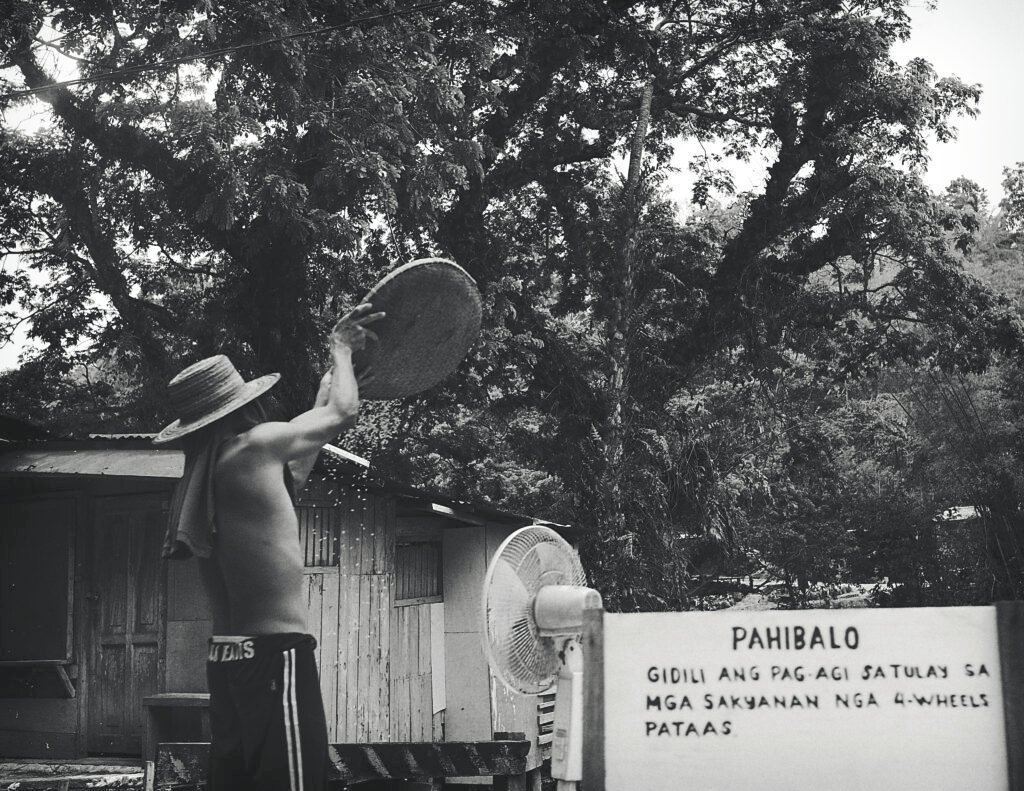
The sun is brutal by ten in the morning, and the asphalt along the national highway in Ilocos Norte shimmers like a restless sea. But he’s already been out here for hours—shirtless, sun-dark, lean from work, spreading grains of newly harvested palay in thin, golden layers across the roadside. His name might be Mang Erning or Kuya Jun—no one asks, not even the jeepney drivers who honk as they pass, sending ripples through the rice with every gust.
With a flick of the wrist, he sends grains of rice airborne from his winnowing basket down to the large battered tarp at his feet. A walis tingting—broomstick thin, handmade—rests in his grip, sweeping the rice smooth, even, sun-exposed. He moves slow but certain, like a man who has done this a thousand times and will do it a thousand more.
A banana leaf hat shades his face, its edges crisp from too many dry seasons. His lips chew the stem of a twig. There’s no radio, no phone. Only heat, grain, road.
Drying rice on highways is illegal in parts, but it’s also tradition. A necessity. Land is scarce. Concrete holds the sun longer. And so the road becomes a farm. In a few hours, he’ll gather the grain, scoop it back into sacks with an old metal dustpan, carry them, one by one, to a waiting cart.
Tonight, maybe, he’ll drink a cold beer. His shoulders will ache. His rice will be ready for milling. And the road will look empty again—just black tar and white lines—until morning returns, and he spreads gold across it once more.